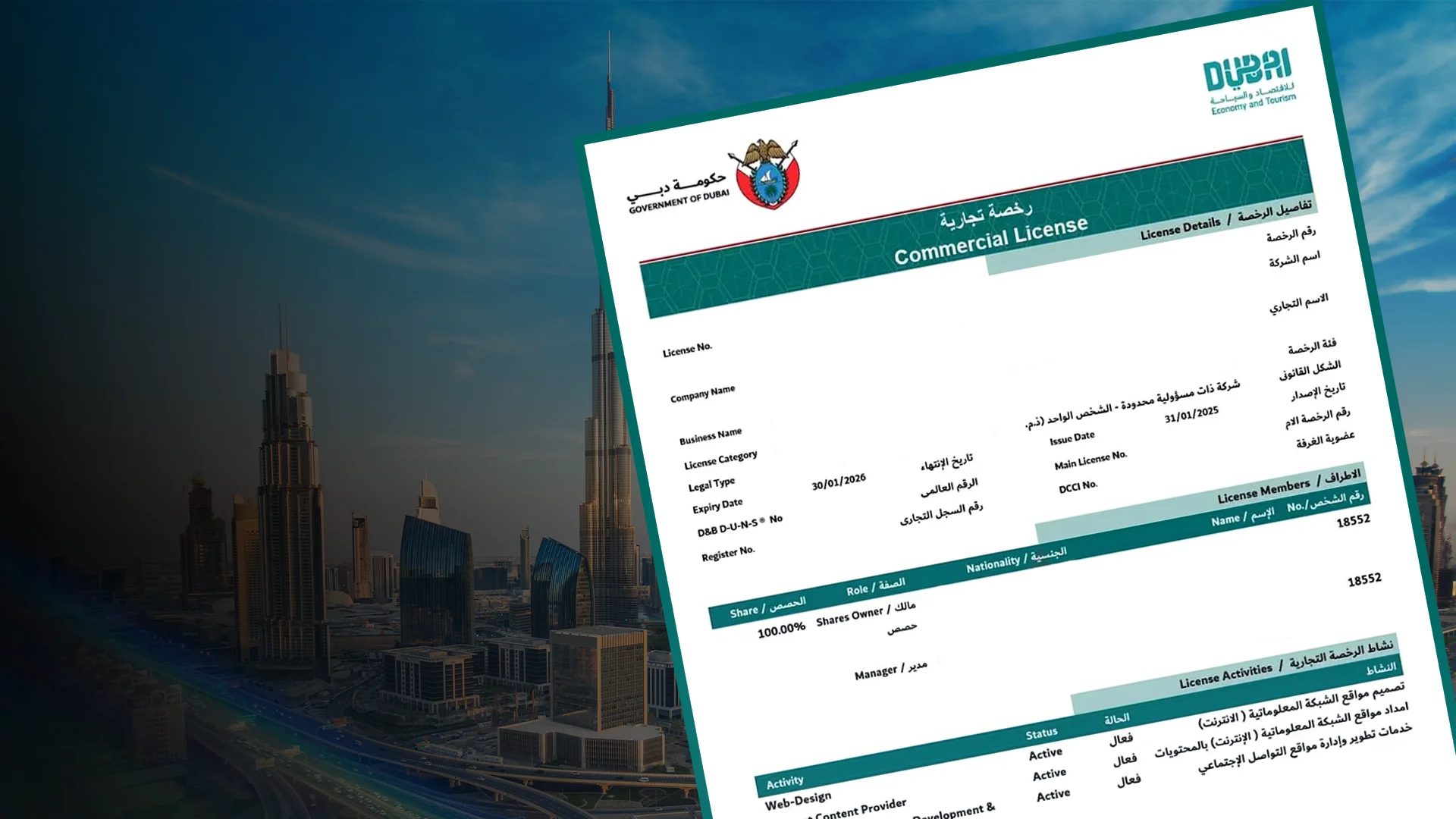
Topic Summary
1. Select the Appropriate Business Activity
Begin by identifying the precise e-commerce activities you intend to undertake. Meydan Free Zone offers various licences tailored to online trading, which must align with your business requirements for seamless regulatory approval.
2. Prepare and Submit Your Business Application
Compile the necessary documentation, including your passport copies, business plan, and proposed company name. Submit these alongside the completed application form to Meydan Free Zone Authority for initial approval.
3. Secure Your Trade Licence
Upon application approval, proceed to obtain your e-commerce trade licence. This licence permits you to legally operate your online business within the free zone and internationally, subject to local regulations.
4. Lease Office Space or Opt for Flexi-Desk Services
Meydan Free Zone requires businesses to establish a physical presence. You may lease office space or opt for flexible desk options, which are economical and suited for startups focusing solely on digital operations.
5. Open a Corporate Bank Account
Finalise your setup by opening a corporate bank account. Prepare to provide your trade licence, company documents, and proof of address to facilitate smooth banking operations and international transactions.
Looking to start an e-commerce business in Dubai?
You're not alone — the UAE’s online retail market is expected to reach USD 9.2 billion by 2026, driven by digital-savvy consumers and a thriving logistics ecosystem. Whether you’re launching a dropshipping store, selling handmade products, or scaling an existing brand, getting an e-commerce license in Dubai has never been easier.
At Meydan Free Zone, we make your online business setup in Dubai simple, fast, and fully digital — with your trade license issued in under 60 minutes and direct access to platforms like Amazon and Noon.
From company registration to product listing, this guide walks you through everything you need to launch your online store in the UAE — minus the paperwork.
Why Dubai Is the Perfect Place to Launch Your Online Business
Dubai isn’t just a global shopping destination — it’s a digital commerce powerhouse. With 99% internet penetration, a young, mobile-first population, and world-class infrastructure, the city offers everything you need to build and scale an online store.
Here’s why entrepreneurs choose to launch their e-commerce business in Dubai:
- Zero personal income tax and 100% foreign ownership
- Access to over 3 billion consumers within an 8-hour flight
- Fast-track access to international logistics hubs like Jebel Ali Port and DXB Airport
- One of the world’s most connected digital governments — with nearly all business services available online
- A surge in demand for online retail, social selling, and mobile commerce
With Meydan Free Zone, you don’t just register a business — you enter a digital ecosystem designed to help your brand grow, trade, and scale fearlessly.
Get Your E-Commerce License in Dubai — Fast, Digital, and Fully Compliant
To legally run an online store in the UAE, you’ll need a valid e-commerce business license. At Meydan Free Zone, the process is fully digital — no paperwork, no NOC, no delays. Here’s what you get with a Meydan Free Zone e-commerce license:
- Limited Liability Company (LLC) structure with 100% foreign ownership
- Choose from over 2,500+ business activities, including specialised online trading options
- Combine up to 3 activity groups under a single license
- Immediate access to visa processing, banking support, and your immigration file
- Zero hidden costs — everything is transparent from day one
Whether you’re starting solo or scaling with a team, Meydan Free Zone offers a free zone license for online business that’s flexible, affordable, and future-ready.
From License to Listings: Get Selling on Amazon, Noon, and More
Getting licensed is just the first step. With Meydan Free Zone, you also get built-in support to launch on the UAE’s top e-commerce platforms — without the guesswork.
Through Meydan Plus (MPlus), you get:
- Assisted seller account setup on Amazon.ae and Noon.com
- Product listing support for one SKU on each platform
- Step-by-step guidance for onboarding, documentation, and marketplace requirements
- Introductions to trusted third-party fulfilment, warehousing, and last-mile delivery partners
- Full business setup and license consultation to match your category, model, and growth plan
Plus, you can expand your reach through our partner ecosystem, which includes platforms like:
- Etsy, Shopify, eBay, Carrefour, Instagram, Sharaf DG, DubaiStore, Namshi, FirstCry, Mumzworld, 6thStreet, Walmart, Target, and more.
Whether you're building a dropshipping store, launching D2C, or listing on multiple channels, Meydan Free Zone gives you everything you need to go from idea to income — fast.
Our E-commerce Starter is available as an add-on for just AED 1,000, exclusive to Meydan Free Zone license holders.
Why Entrepreneurs Choose Meydan Free Zone for E-Commerce
Meydan Free Zone isn’t just where you register a business — it’s where you build a brand.
From platform onboarding to product listing and long-term support, everything is designed to move as fast as your ambition.
Whether you're testing one product or scaling across multiple channels, you’re backed by:
- A connected ecosystem of platforms, partners, and payment providers
- Expert-led onboarding for Amazon and Noon
- Optional services that evolve with your needs — not lock you into extras you don’t
- A setup model that’s digital by default, personal when you need it
Ready to Launch Your Online Business in Dubai
Whether you’re building your first store or scaling your next venture, Meydan Free Zone gives you everything you need to launch, grow, and succeed — in one place, without the paperwork.
Start your e-commerce journey today — and turn your idea into a global business.
FAQs
1. What license do I need to start an e-commerce business in Dubai?
You’ll need an e-commerce business license issued by Meydan Free Zone. We offer a digital license with 100% foreign ownership and no NOC required.
2. How fast can I get an e-commerce license from Meydan Free Zone?
If you choose Fawri, you can receive your Meydan Free Zone e-commerce license in under 60 minutes through a fully digital setup process.
3. Can I sell on Amazon and Noon with a Meydan Free Zone license?
Yes. Meydan Free Zone offers an optional E-Commerce Starter add-on to help you set up seller accounts and list your first products on Amazon.ae and Noon.com.
4. How much does it cost to start an online business with Meydan Free Zone?
Business license packages start from AED 12,500 for regular setup or AED 15,000 under the Fawri license. Optional add-ons like the E-Commerce Starter cost AED 1,000. Additional costs may apply for visa allocations and banking — get in touch for a customised quote based on your setup needs.
5. Do I need a physical office to run an e-commerce company in Dubai?
No. Meydan Free Zone offers flexi-desk options and does not require a physical office to operate an online business.
6. Can I open a UAE bank account with my Meydan Free Zone license?
Yes. Meydan Free Zone provides banking support and guarantees account opening through trusted partner banks and digital banking solutions.
7. What marketplaces can I access through Meydan Free Zone’s partner network?
You can sell on Amazon, Noon, Shopify, Etsy, eBay, Carrefour, and other platforms through Meydan Free Zone’s extensive e-commerce partner ecosystem.
































